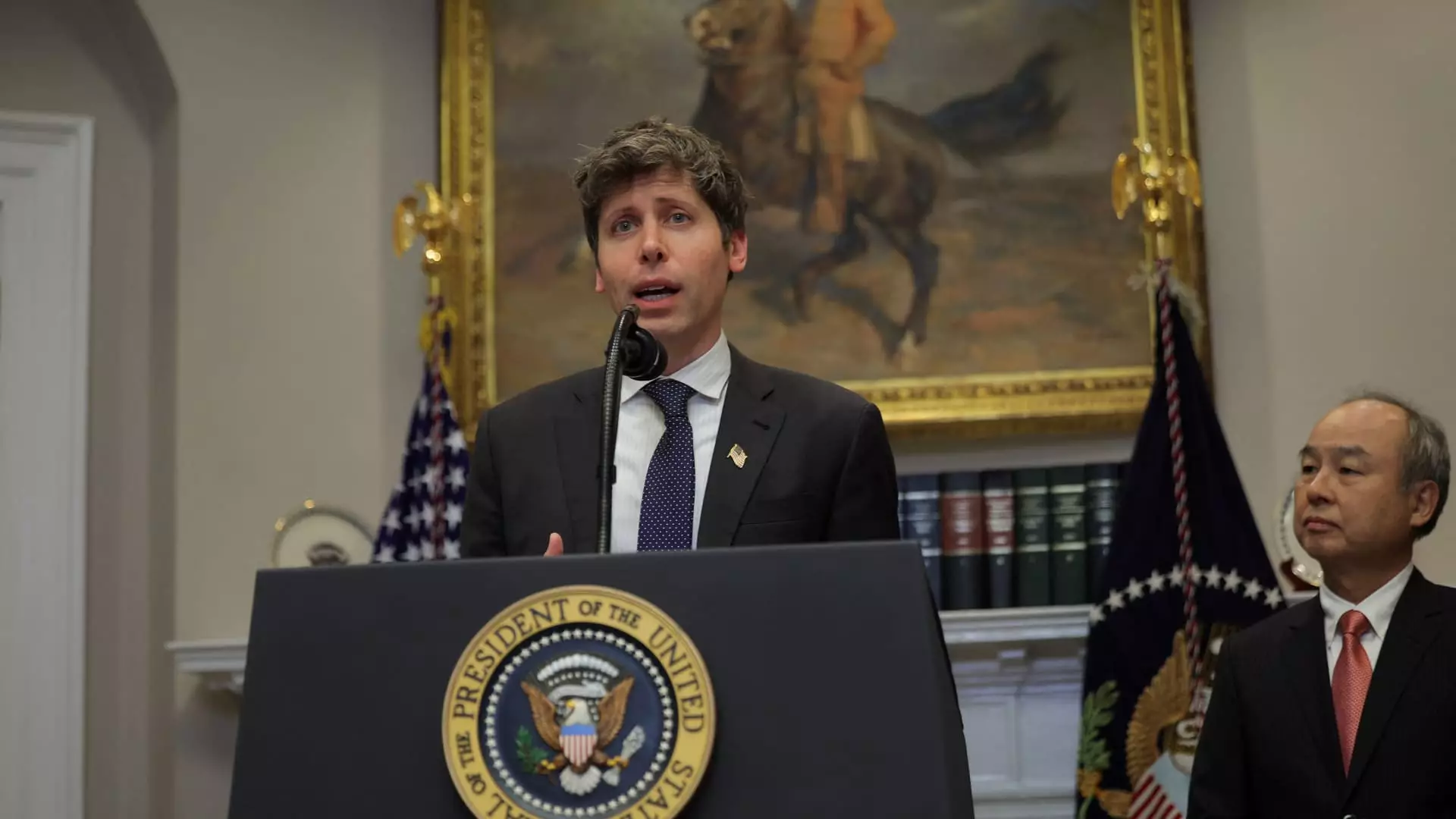In a bold move toward expanding its influence in the artificial intelligence (AI) sector, OpenAI is reportedly negotiating a massive funding round that could reach up to $40 billion. This significant investment would elevate the company’s valuation to an eye-watering $340 billion, underscoring the high stakes associated with AI development today. As new players enter the arena and existing titans ramp up their efforts, OpenAI’s ambition reflects both the vast potential of AI technology and the fierce competition currently reshaping the landscape.
Leading this funding initiative is Masayoshi Son’s SoftBank, which is poised to contribute a substantial portion, estimated between $15 billion to $25 billion. Should this deal come to fruition, it would position SoftBank as OpenAI’s primary investor, eclipsing the previous top backer, Microsoft. Such a shift signals a potential recalibration of power dynamics within the tech industry, as SoftBank would become a major player in financing AI advancements. The strategic backing from SoftBank is not merely a financial transaction; it hints at a broader vision for AI infrastructure that transcends competition among tech giants.
This funding is not just intended for OpenAI’s operational enhancements; it may also support a collaborative project known as Stargate, a joint effort involving OpenAI, SoftBank, and Oracle. Announced recently by President Biden, the Stargate initiative aims to inject billions into U.S. AI infrastructure, a clarion call for America to maintain its leadership position in the burgeoning AI domain. The alignment of such investments highlights a concerted effort to foster innovation domestically while addressing global competition.
Notably, OpenAI has carved a niche as a formidable player in generative AI since the release of ChatGPT, which catalyzed a surge of interest and investment in AI technologies. Following substantial funding routes, including a previous $6.6 billion round, OpenAI is equipped to intensify its rivalry against well-established entities such as Elon Musk’s xAI, Microsoft, Google, and Amazon. Furthermore, the emergence of competitors like the Chinese startup DeepSeek introduces new variables into the competitive equation. With its rapid ascent in the App Store rankings, DeepSeek is not just a fascinating alternative but also a reminder of the increasingly global nature of AI advancements.
During a recent event, OpenAI’s CEO Sam Altman remarked on the promising emergence of DeepSeek, reinforcing the message that a diverse range of models and approaches is vital for the evolution of AI technology. Altman’s perspective points to an environment where healthy competition fosters innovation and the ethical development of AI. The landscape is not static; it is evolving rapidly, and those involved must remain agile to react to new challenges and opportunities.
The proposed funding round for OpenAI signifies more than just financial growth; it encapsulates a broader vision for future AI advancements, cooperation, and competition. As various entities, both domestic and international, vie for dominance in AI innovation, the outcomes of these negotiations will shape not only the trajectories of companies like OpenAI but also the future of technology itself. The stakes are high, and the journey is just beginning.

